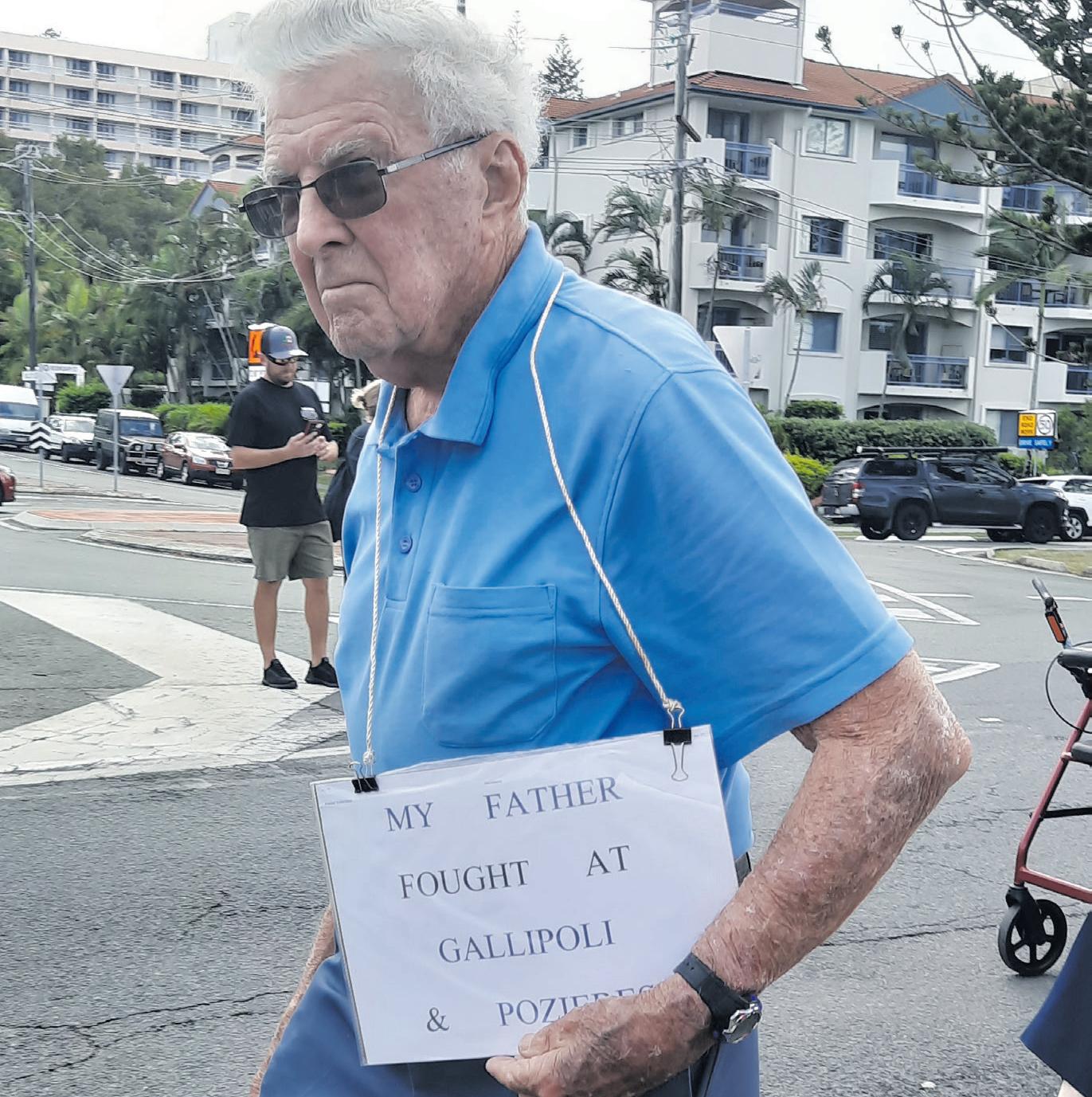
2 minute read
Son of an Anzac soldier retells his father’s story
By SARAH WATERS
A Turkish soldier, who fought in Gallipoli, once remarked that he always remembers the blue eyes of the Anzac troops.
When looking into the blue eyes of Ian Stuart, the son of an Anzac soldier, they transport you back to that infamous time in history.
At 93-years-old, Mr Stuart is well aware there aren’t many people left who can say their father fought in - and survivedthe brutal battle fields of Gallipoli.
Mr Stuart’s Father, Douglas Villers Stuart, survived eight months of bombardment in Gallipoli as an Anzac solider.
Aged 23 at the time, Douglas Stuart was then sent to Pozières, a small village in the Somme Valley in France.
Pozières was the scene of bitter fighting in mid-1916.
Australian troops managed to capture the village of Pozières, where the high ground was an essential advantage point during The Battle of the Somme.
But it came at a huge cost to Australian lives.
Douglas Stuart was one of the thousands of Australian troops injured during the relentless artillery bombardment.
A piece of shrapnel broke most of his rib cage on the righthand side and took out his right lung.
“He woke up in the morgue,” Mr Stuart said.
“He was that badly injured, they thought he was dead.”
A commander, who just happened to be passing by the morgue, heard Douglas Stuart calling out when he woke up.
Douglas Stuart was identified, taken to hospital and underwent six major operations.
It took two years of recovery until he was well enough to leave hospital.
Mr Stuart said when his father returned to Australia, he was discharged from the Army due to the extent of his injuries.
“He took up a clerical job for a while, then he became paymaster for the people constructing the (now closed) railway from Dorrigo to Glenreagh.
“Following that he bought a sawmill, and he was doing alright, but he gave that up when the Americans started delivering timber at a price that he couldn’t compete with.

“He then went and helped his brother on his orchard, then he was married (in the late 1920s) and following his marriage and my birth, the depression hit.”
Douglas Stuart managed to get a labouring job on a property in rural NSW for the next 18 years, where Ian Stewart grew up as a young boy.
He said his father’s life was hard after the war, but the family managed to get by well enough.
When Douglas Stuart was in his sixties, he needed to have an operation.
As an ex-serviceman, he was able to have the operation at Concord Repatriation Hospital in Sydney, but unfortunately the operation was botched, and Douglas Stuart’s life was lost.
“He survived Gallipoli, but not Concord Hospital.”
Mr Stuart said his father ‘refused to make any comment’ about his experience as a solider in Gallipoli and Pozières.
“The memory of it was so great that he didn’t want to try and recall it.
“It was too painful for him to talk about it, and he never did.”
Mr Stuart said for the last 10 years he has attended Anzac services.
“As time goes on, I release the extraordinary sacrifice that everybody has made, so I think it’s only appropriate to pay respects to those who were able to secure a safe environment for our families to grow up in.”










